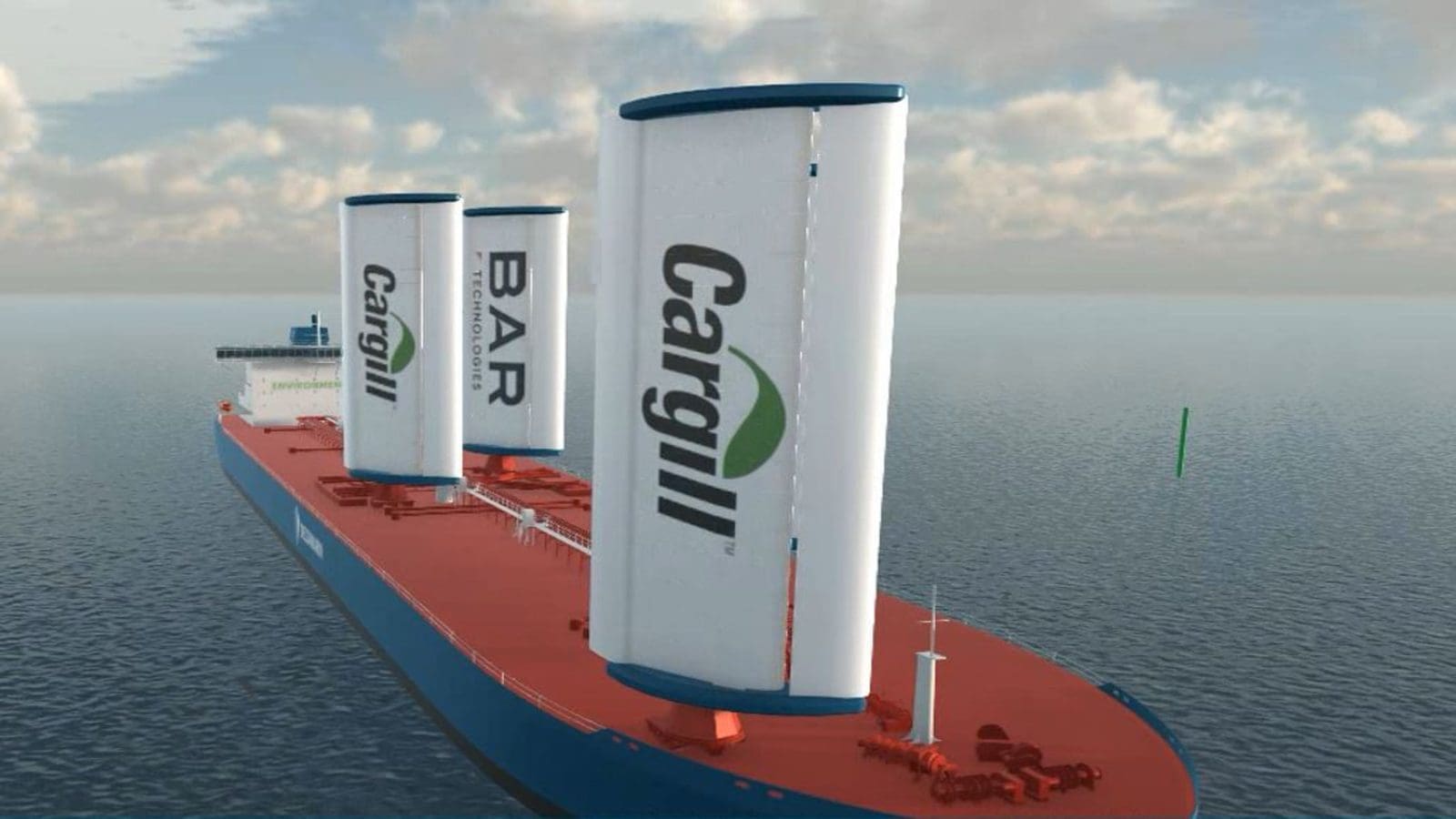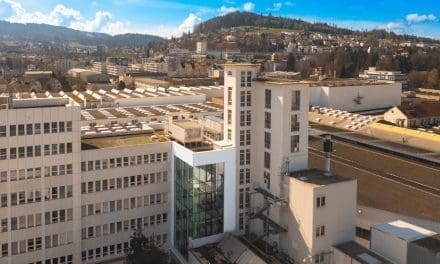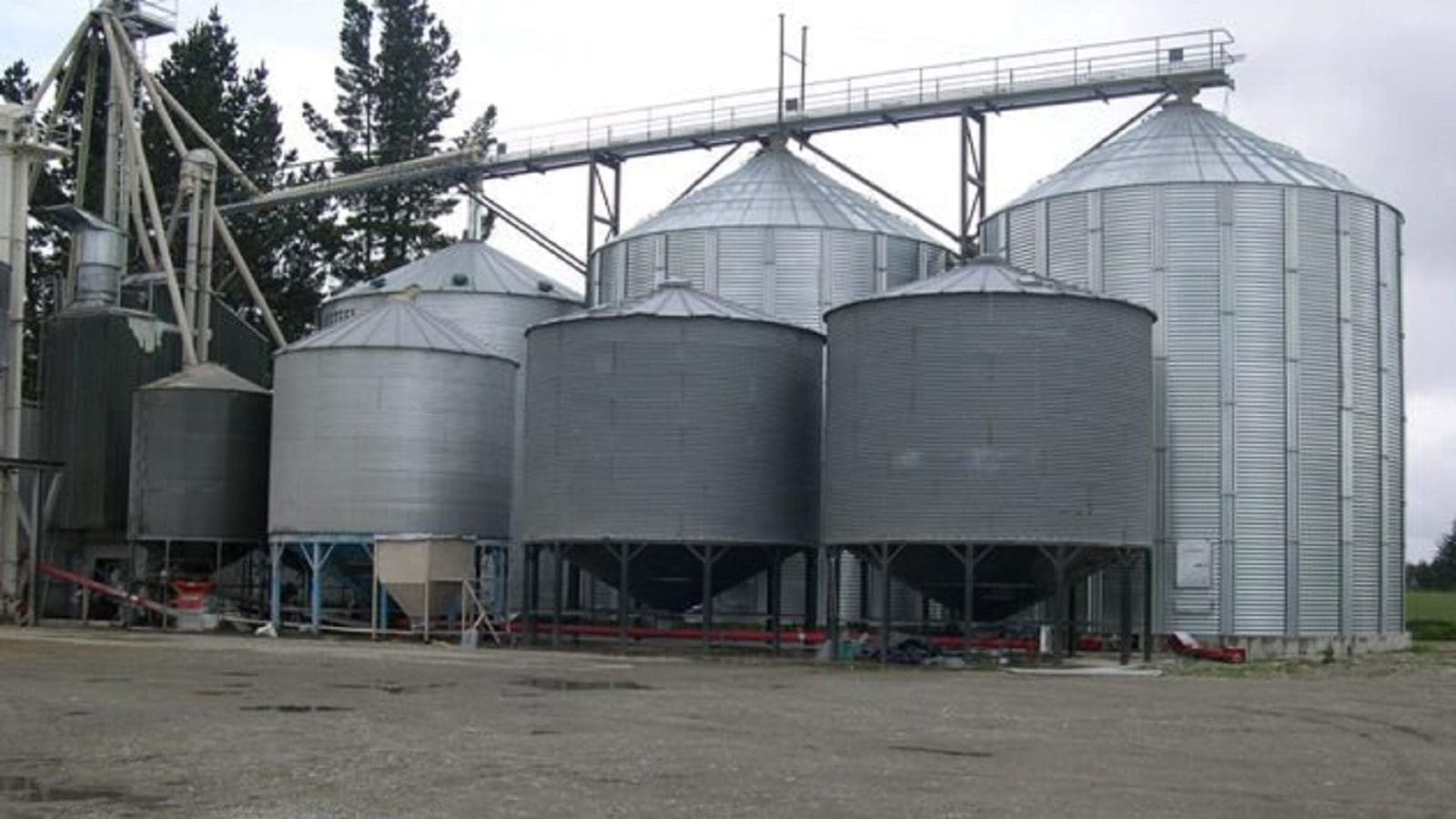USA – US-based Cargill, one of the world’s biggest ship charterers, is considering wind power for cargo ships as the agricultural commodities giant moves to cut emissions from its chartered fleet.
With about 90% of world trade transported by sea, shipping accounts for nearly 3% of the world’s CO2 emissions.
Consequently, according to environmental campaigners, regulatory efforts by the sector to cut emissions are still slow.
The sea transport industry aims at cutting greenhouse gas emissions by 50% by the year 2050, from 2008 levels.
To achieve this goal and offset the dangerous effects of greenhouse gas emissions, industry players have to implement drastic measures in their operations.
Last year, giant commodity trader Cargill Inc. announced plans to pilot-test two 120-foot-high rigid wind sails made of steel and composite glass to be outfitted on the Mitsubishi Corp.-owned 751-foot-long carrier that it charters.
According to Jan Dieleman, president of Cargill’s ocean transportation business., these sails could help cut emissions on a new-build ship optimized for wind by as much as 30%.
These emissions are equal to about 6,400 metric tons of carbon dioxide per year.
Additionally, this adoption of sails could reduce fuel consumption by 20 to 30%, giving the company immediate payback on its investment.
Cargill planned to have the ship operating commercial runs for up to six months after it’s delivered in the first quarter of 2023, with plans to retrofit as many as 10 more ships upon successful trial.
According to an article by Reuters, Dieleman holds that Cargill will test a dry bulk vessel with two wind sails carrying cargo onboard in the coming weeks.
”The performance of the sails will be closely monitored to further improve their design, operation, and performance,” he told Reuters.
Dieleman said Cargill was also exploring different wind-assisted propulsion technologies, adding that wind would not get the group to a zero-carbon level, but was “a step towards zero”.
“If you really want to make a step change you need to get to wind and zero-emission fuels,” Dieleman says.
Cargill’s Dieleman says that the cost of installing wind propulsion systems is also a challenge, and it would not make economic sense to use the technology across Cargill’s fleet at this stage,
He added that it could take seven years to make back the money the group has invested already, and more companies could have many more ships utilizing wind-assisted propulsion technologies.
Cleaner fuel options
While wind power is a good solution for the transport industry to reduce its toll on the environment, there are other options that the industry can adopt.
For example, the industry is testing cleaner fuel options, including ammonia and methanol, moving away from dirtier bunker fuel.
Cargill has separately signed a long-term charter deal for two dry bulk ships utilizing methanol as fuel. Cargill will receive these ships at the end of 2025 and the start of 2026.
“While we went for methanol, it does not mean we don’t believe in ammonia or anything else. Ammonia is technically feasible. The safety concern has not been completely addressed,” Dieleman said.
For all the latest food industry news from Africa and the World, subscribe to our NEWSLETTER, follow us on Twitter and LinkedIn, like us on Facebook and subscribe to our YouTube channel










